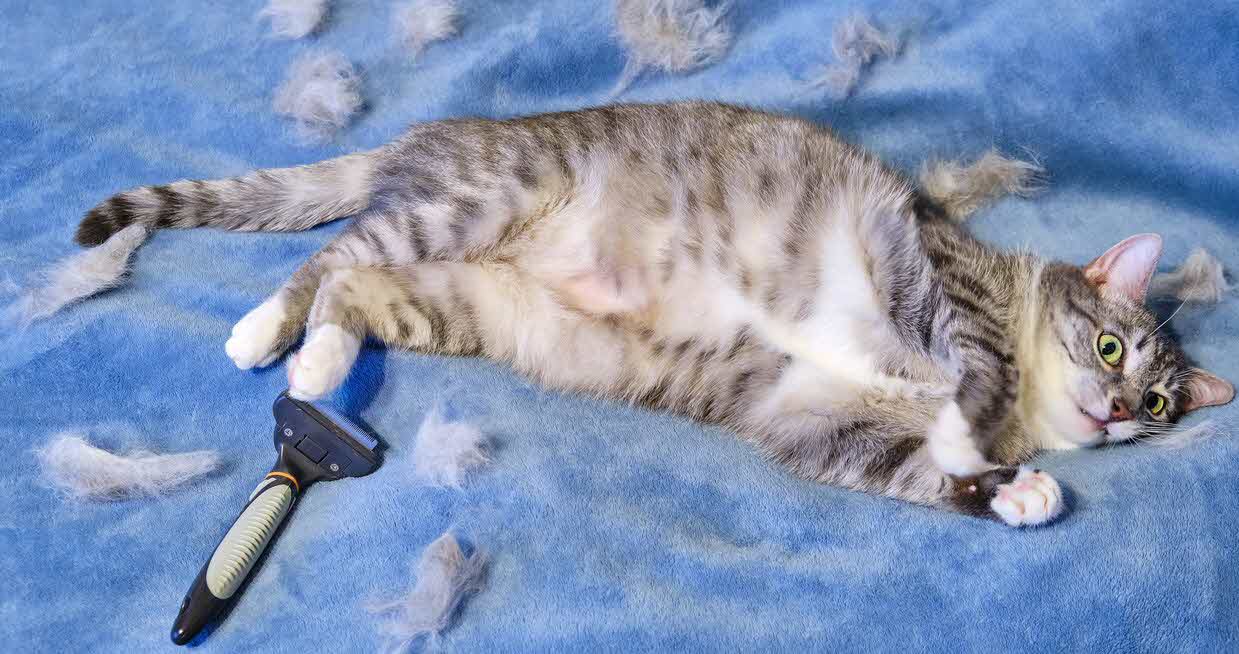Cat Hairball Remedies: Effective Solutions for Your Feline Friend
Introduction
Cats are beloved companions, but one common issue they face is the development of hairballs. These unpleasant clumps of fur can cause discomfort to your furry friend and may even lead to serious health complications. In this article, we will explore effective cat hairball remedies to help alleviate this issue and improve your cat’s well-being.
I. Importance of Cat Hairball Remedies
Hairballs are a natural consequence of a cat’s grooming habits. When cats groom themselves, they ingest loose hair that accumulates in their digestive system, leading to the formation of hairballs. While occasional hairballs are normal, excessive hairball problems can be problematic. Therefore, implementing effective remedies is crucial for maintaining your cat’s health.
II. Signs and Symptoms
Identifying when your cat is experiencing hairball problems is essential for timely intervention. Look out for common signs such as frequent retching, coughing, or vomiting, which are indications that your cat is attempting to expel a hairball. Additionally, you may notice changes in your cat’s behavior, such as decreased appetite, lethargy, or constipation.
III. Prevention
Preventing hairballs in cats involves a combination of regular grooming and providing an appropriate diet and hydration. Regular brushing helps remove loose hair from your cat’s coat, reducing the amount of hair ingested during grooming. Furthermore, ensuring your cat has access to fresh water and a balanced diet with high-quality cat food can help improve digestion and reduce the formation of hairballs.
IV. Home Remedies
- Natural Remedies
- Increasing Fiber Intake: Adding a small amount of canned pumpkin or a high-fiber supplement to your cat’s diet can promote healthy digestion and aid in the passage of hairballs.
- Petroleum Jelly or Hairball Paste: These products act as lubricants, helping hairballs pass through the digestive tract more easily. Consult your veterinarian for appropriate dosage and usage instructions.
- Commercial Hairball Remedies
- Specialized Cat Food: Some cat food brands offer formulas specifically designed to reduce hairballs. These formulas often contain added fiber or ingredients that promote hairball elimination.
- Hairball Treats: These treats contain ingredients that help prevent the formation of hairballs and aid in their elimination. They can be given as a snack or mixed with regular food.
V. Veterinary Interventions
In severe cases or when home remedies do not provide sufficient relief, veterinary interventions may be necessary. Your veterinarian may recommend prescription medications, such as laxatives or digestive enzymes, to help your cat pass hairballs more easily. Additionally, professional grooming services, including regular trims or specialized grooming techniques, can minimize excessive shedding and hair ingestion.
VI. Dealing with Frequent Hairballs
If your cat experiences frequent hairballs despite preventive measures and home remedies, it is crucial to seek veterinary advice. Your veterinarian can assess your cat’s overall health and recommend lifestyle adjustments to minimize hairball formation. These adjustments may include dietary changes, environmental enrichment such as providing scratching posts or interactive toys to encourage exercise and reduce stress.
VII. Conclusion
Cat hairball problems can be bothersome for both cats and their owners, but with the right remedies and preventive measures, you can help your feline friend find relief. Regular grooming, a proper diet, and access to fresh water are essential for preventing hairballs. Natural remedies like increasing fiber intake or using petroleum jelly can aid in the passage of hairballs. Commercial hairball remedies, such as specialized cat food or hairball treats, can also be effective. In more severe cases, veterinary interventions may be necessary, including prescription medications or professional grooming services. Remember to consult your veterinarian for guidance tailored to your cat’s specific needs.
FAQs (Frequently Asked Questions)
- Can hairballs be dangerous for cats? Hairballs can pose a risk to cats if they become too large to pass through the digestive system. They can cause blockages, leading to potentially serious health issues. It’s important to monitor your cat’s hairball frequency and seek veterinary advice if you have concerns.
- Are there any natural supplements that can help prevent hairballs? Yes, there are natural supplements available that can aid in preventing hairballs. Examples include products containing psyllium husk, which is a source of soluble fiber that promotes healthy digestion and reduces hairball formation.
- Can excessive grooming contribute to more hairballs? Yes, excessive grooming can lead to more hairballs as cats ingest more loose hair during the process. If you notice your cat grooming excessively, it may be worth consulting with a veterinarian to rule out any underlying health issues.
- What should I do if my cat has difficulty passing a hairball? If your cat is struggling to pass a hairball, it’s important to contact your veterinarian for guidance. They may recommend specific treatments or interventions to help your cat safely eliminate the hairball.
- Are there any breeds of cats more prone to hairballs? Long-haired cat breeds, such as Persians or Maine Coons, are generally more prone to hairballs due to their abundant fur. However, hairballs can occur in cats of any breed or coat length. Regular grooming and preventive measures are important for all cats.
Read More:Cat Grooming Tips: Best Practices for a Healthy Feline Coat




